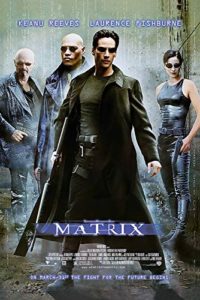Hello hello! Welcome to my little alcove of the internet where I am looking to take non-philosophical pop culture stimuli and dive deep into the philosophical implications and ideas hidden beneath the surface. Each of these posts will be a journey through intellectual exploration and discovery, wherein I’ll pick the brains of philosophical thinkers and works and see where they take me; vamos!

“Wild Kratts” is a children’s educational TV series that follows the adventures of Chris and Martin Kratt, who are brothers and animal experts. They travel the world to explore different habitats and learn about various animals, using technology to aid them in their quest. In the show, the brothers wear special creature suits that allow them to mimic the abilities of the animals they are studying. The creature suits are designed to give them the strength, speed, and agility of different creatures, allowing them to experience the world from a unique perspective.
The use of creature suits in the children’s television show “Wild Kratts” raises several ethical questions regarding our relationship with nature and non-human animals. Philosophers have explored these issues in depth, drawing on various ethical theories to provide insight into the ethical implications of the use of these creature suits.

In the information age, concerns over the human-technology singularity are ever-prevalent. The ethical, moral, and existential quandaries about what defines reality and humanity are questions that have pervaded the minds of thinkers for millennia. As the world continually advances in technological innovation, we are increasingly pressed to arrive at a collective consensus and rationality for what distinguishes human nature and agency and if technology should allow us to change our nature. These are questions directly correlated with the hypothetical of whether we should be able to plug into a conscious experience machine. Robert Nozick describes the experience machine as a man-made simulation that could give any one person any experience they desire, simulating all the people within it, or a machine that provides the same illusion to everyone. In this case, everyone is subaltern to the one who is in control of the machine. This version of the experience machine is reflected in the film The Matrix, wherein vast populations subaltern to the machines collectively exist within a simulation, making up coordinate pieces of a simulated reality. In this paper, an experience machine will be defined as a virtual simulation that can create experiences wherein the agents who are a part of the simulation are subaltern. Subaltern is defined as a person who is under the control of an oppressor, like the humans in the matrix. An experience machine will be limited to a man-made reality. The human mind will be defined as finite. The man-made simulation will be defined as being distinct from reality before plugging in, as they are clearly two different things given that there is a choice between plugging in or not. Doing something will be defined as distinct from experiencing or thinking that we have done them. (read more)

The 2013 video game cutscene offers a glimpse into the complexity of Wilson’s character and raises profound questions about the nature of personal identity and unified consciousness. Beneath the surface of irreverent humor, fourth-wall-breaking antics, and captivating unpredictable nature lies a deeper philosophical question: how do Deadpool’s multiple personalities and dissociative identity disorder impact his sense of self, identity, and consciousness? Through his ever-changing personalities and body composition– does he retain the same sense of self? Is his consciousness unified or is it fragmented by dissociation? What are the ethical implications of experimentally altering Wilson’s sense of self? In this essay, I will investigate the philosophical implications of Deadpool’s multiple disorders, and through this inquiry, I will argue that a person’s sense of self and personal identity remains intact even when their consciousness is fragmented and divided as the basis for sense of self is not inherent. I will consider the neuroscience basis for unified consciousness, the aesthetics of human consciousness, and how multiple personalities affect sense of self and unified consciousness, gaining a deeper understanding of the impacts of biological and psychosocial factors on personal identity and consciousness. (read more)